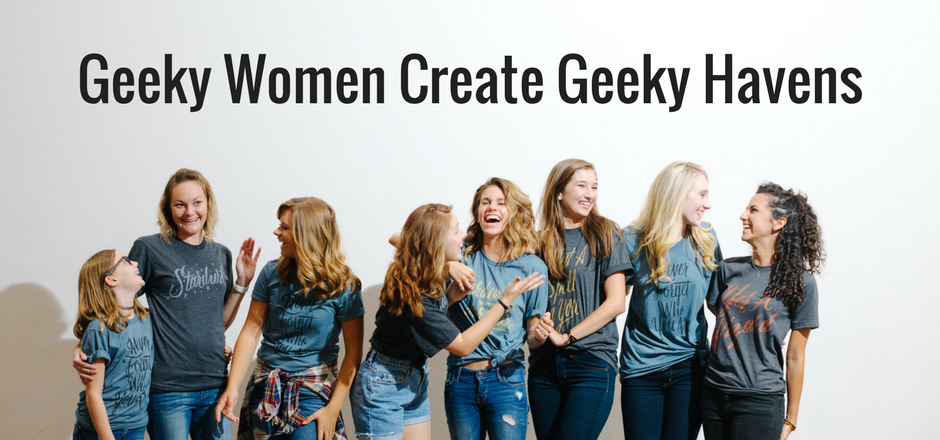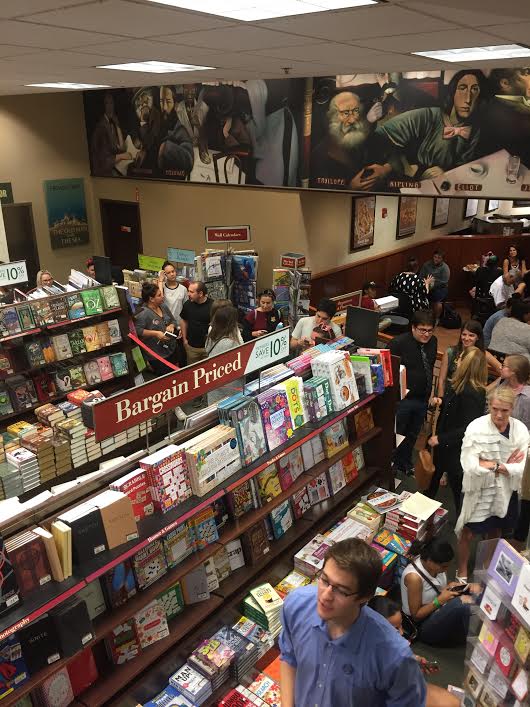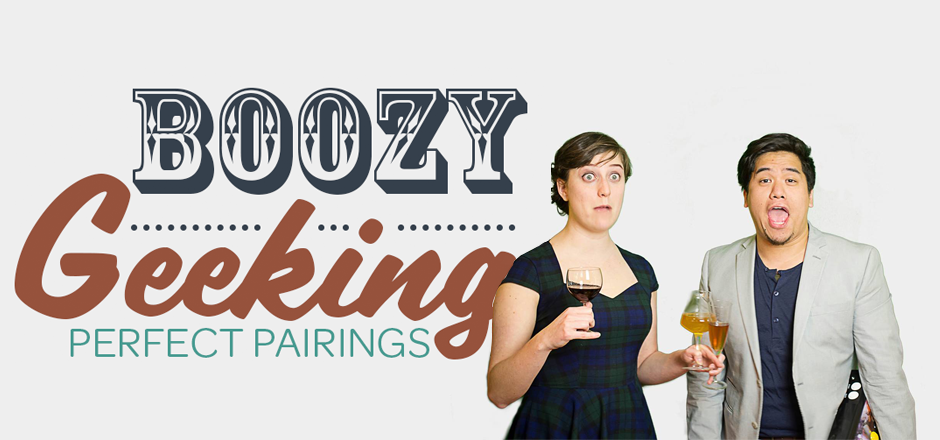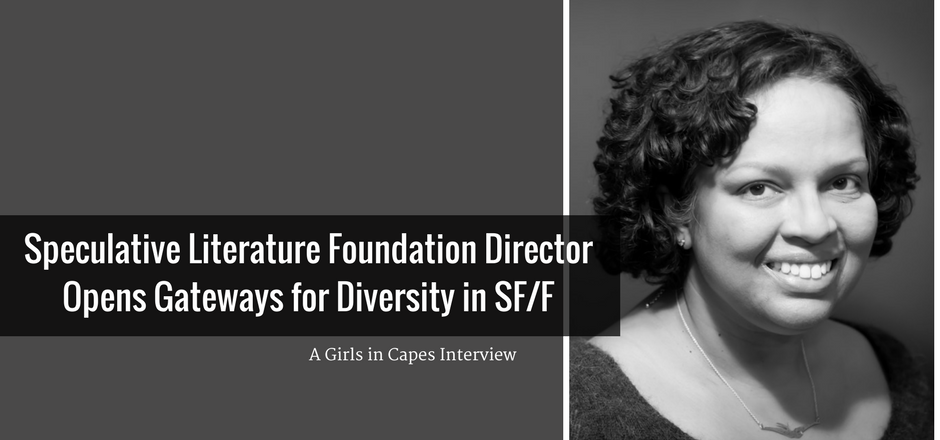Jordan Ellis has always been drawn to geeky fandoms. Harry Potter, comic books, and conventions have always been a source of excitement and comfort for her – and Ellis actively works to keep this comfort present in her fan communities. She’s seen how certain fandoms can be unwelcoming towards women and other minorities, especially on sites like Reddit, and has never wanted to be part of a community that behaves like that.
But Ellis still felt fandoms were lacking diversity, particularly in merchandise, leading her to start her nerdy home goods and apparel store, Jordandené.
“I could never find any high-quality nerdy things, especially for women,” Ellis said. “I didn’t think anyone else was [making nerdy clothing and home goods for women], so I started Jordandené to remedy that.”
Rose Del Vecchio cofounded her fandom subscription box service, FanMail, with Jenny Cheng for similar reasons.
“I wanted to make more cool stuff for women, as other subscription boxes didn’t have female-oriented fandom content,” Del Vecchio said. “It was important for me to support other women – we support at least one small business such as shops from Etsy when we send out our bimonthly box, which helps provide attention to other women-run businesses.”
Ellis fosters a sense of community between her and her customers, like Del Vecchio does with her support of small businesses.
“I’ve always been focused on creating a community between my customers and I,” Ellis said. “Providing great customer service is one way Jordandené does this, but being a geeky business, we’re already able to connect with our customers through the nerdy interests we all share. It’s great that we’re able to talk to our customers about these passions that we all love and form a community through that.”
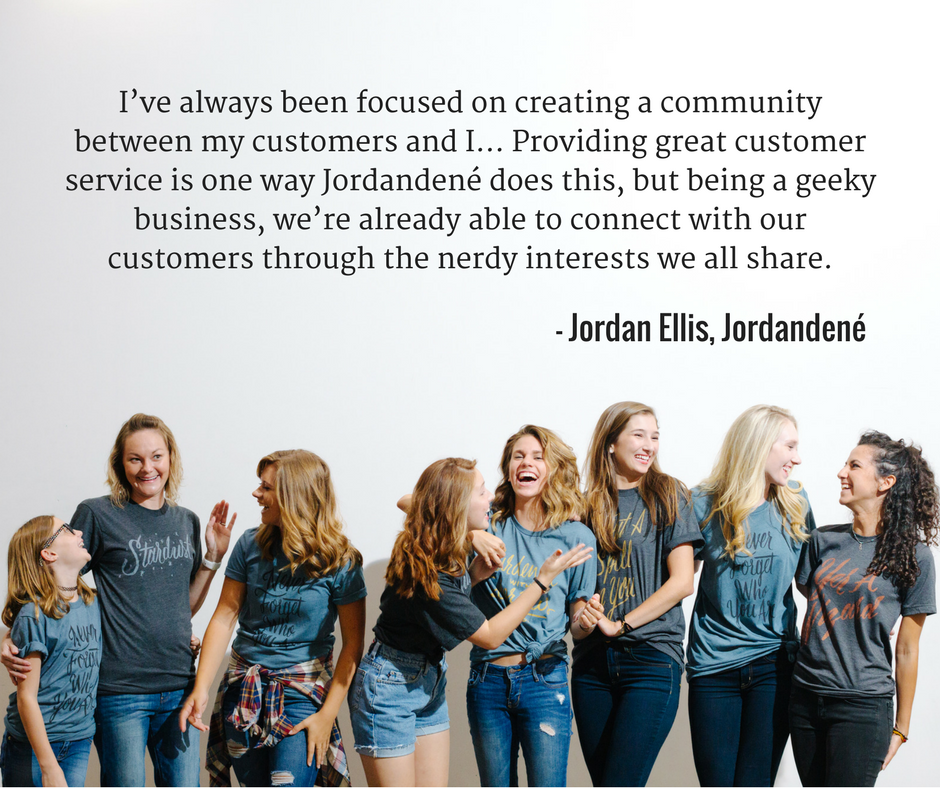
Del Vecchio and Ellis’s businesses are focused on creating content for and supporting geeky women because both feel it’s especially important that these women have strong communities. Having a space where they feel safe and respected can help women feel comfortable displaying their nerdy passions.
Cathy Fiebach’s decision to start her bookstore, Main Point Books, came from a different motive: for her, it was all about timing and convenience.
“Anybody who knew me when I was six was not surprised at all that I opened a bookstore… I always loved reading,” she said. “I was in a place in life where I could do something I just wanted to do, and it wasn’t as big of a financial risk to my family.”
Though many people dream of starting their own business, they’re not necessarily financially ready to do so – nor do they always know enough about business.
“I think there’s plenty of people who start businesses without doing the due diligence… Sometimes it’s not being able to know what you have, but there are resources [to learn how to start a business],” Fiebach said.
Fiebach doesn’t really think these factors deter most people from starting their business, though. She said most people who are willing to put time and energy into this will try their hardest to look for resources and work on a business plan.
And because reading is often stereotyped as a feminine activity and lots of fiction is geared towards women, Fiebach also thinks that running a bookstore is a relatively easy business for women to get into.
“[Running a bookstore] is not a hard industry to get into if you’re a woman. Certainly my customers…[while] there are plenty of men, it does skew female…I do think it’s easier to be a female in business that it used to be,” Fiebach said. “I can’t say that it’s a no-brainer to open a bookstore. It’s very competitive, it is very hard to make money, book prices are set [and] it’s being heavily discounted by Amazon.”
Because of the community her business attracts, Ellis also hasn’t had huge problems with harassment as a woman running a business.
“I’ve been very lucky that I don’t have to deal with much harassment,” Ellis said. “My customers are mostly nerdy women and they especially make sure that harassment doesn’t occur within our community. Branching out of my small community worries me slightly because that’s when I may actually have to deal with harassment.”
Ellis and Fiebach have also had interactions with people who didn’t understand the importance of their business or saw it as just a hobby. These encounters, thankfully, were so minor that it was easy to dismiss the comments. Del Vecchio also hasn’t experienced any harassment running her business, though she has dealt with sexist stereotypes.
“There was a comic book publisher that approached us to do a variant cover, and their initial idea that they pitched heavily relied on the cover being pink,” Del Vecchio said. “We did not move forward with them in further conversation it became clear that they did not understand our mission and that the default expectation for a product geared towards women be pink was stereotyping.”
Though running a business might not cause as many problems for women as it did in the past, the geeky community itself still has to deal with a lot of gender-driven harassment issues.
Del Vecchio has been going to conventions for years and has always seen creepy, older men there making sexual remarks towards women. Despite this, she’s always loved going to conventions because she can meet other geeky women who also want to see more geeky content made for women. And Ellis avoids fandoms with large amounts of discrimination by interacting with her own network of geeky friends online where she knows there’ll be a positive, inclusive environment present.
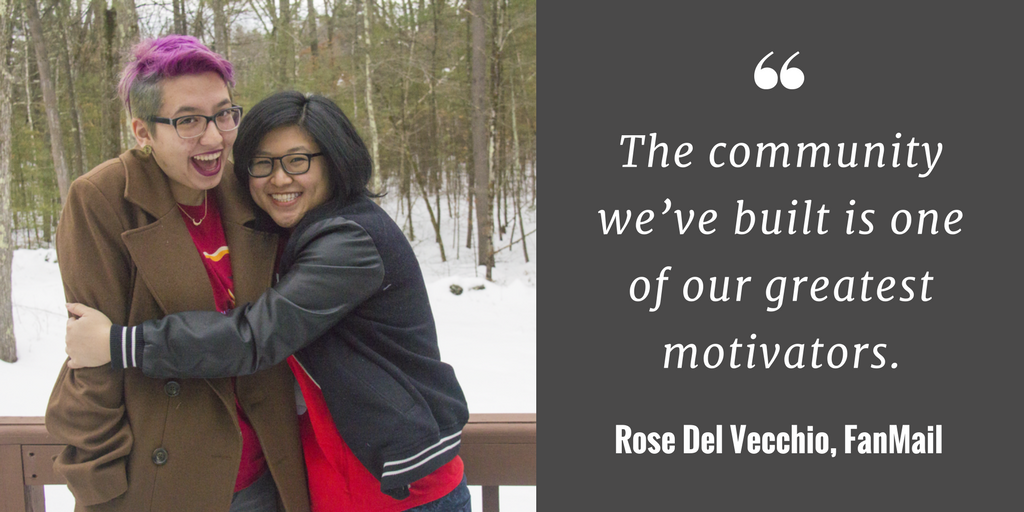
The community these three women have built within their businesses overshadows any negativity they may receive.
“When we first started FanMail, we received 100 subscriptions in the first month, and some of them are still subscribed to this day,” Del Vecchio said. “They give us recommendations for different fandoms to cover in the boxes, and it’s amazing that we’re able to connect with our subscribers in this way. The community we’ve built is one of our greatest motivators.”
Fiebach fostered a sense of community between her employees and her clients through a shared love of reading.
“[Main Point Books] has to be a service-based business. People have to be able to come in and talk about books… I really try to hire people who love books, too,” Fiebach said. “We get a community of readers who are coming in, who want to be here, of all ages and genders and colors. It’s a diverse community, but reading… brings everybody together.”
As Fiebach pointed out, starting a business is a daunting task for anyone even when they already have the underlying passion. But for those geeky women who really want to start their own business but haven’t found the courage to do so yet, knowing the importance of safe and respectful communities for their fandoms could be the push they need to start.
“Lots of people who grew up being bullied look towards fandoms and communities for support. Beyond that, oftentimes there isn’t a space within fandoms where women and other minorities can feel welcome,” Ellis said. “It’s good to represent these people and be a role model for others. The nerd community is incredibly accepting and diverse and, by continuing to contribute to this through your own business, you can help make the world a better place.”
[blocktext align=”center”]What are some of your favorite geeky woman-owned businesses?[/blocktext]
Photos courtesy of Jordandené and FanMail.
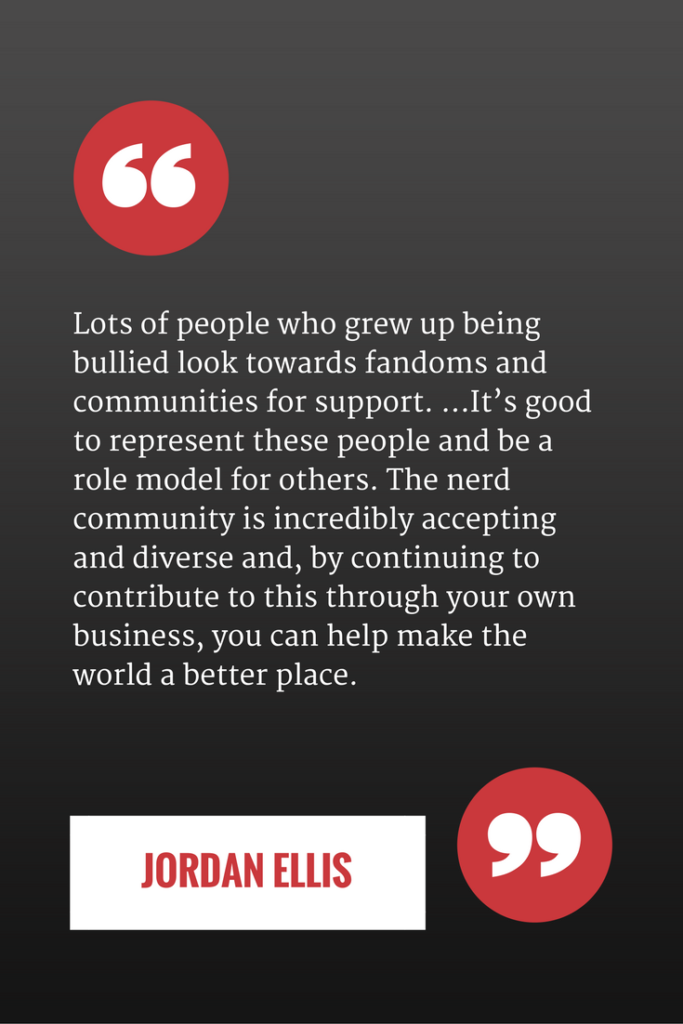
[coffee]
